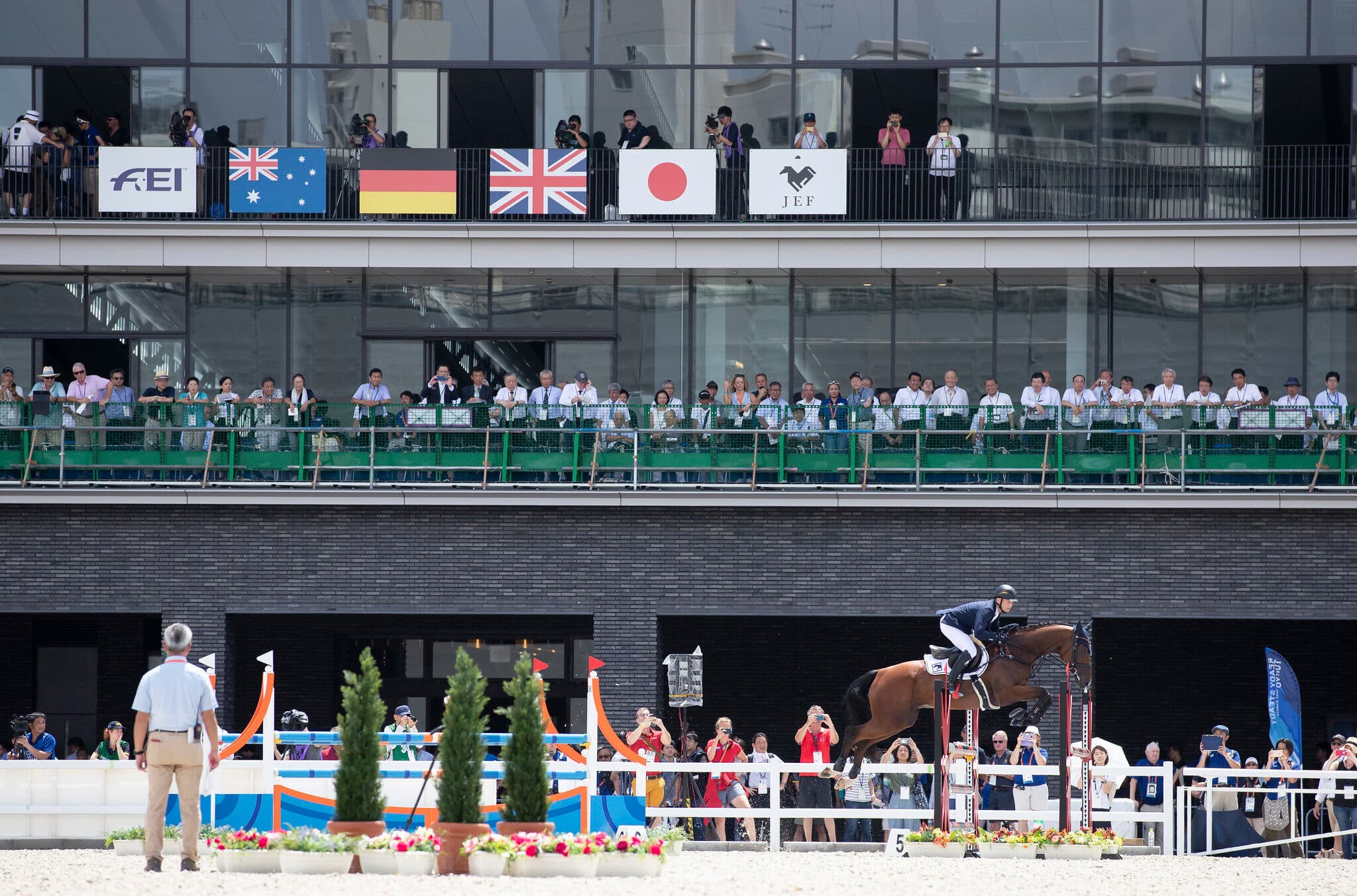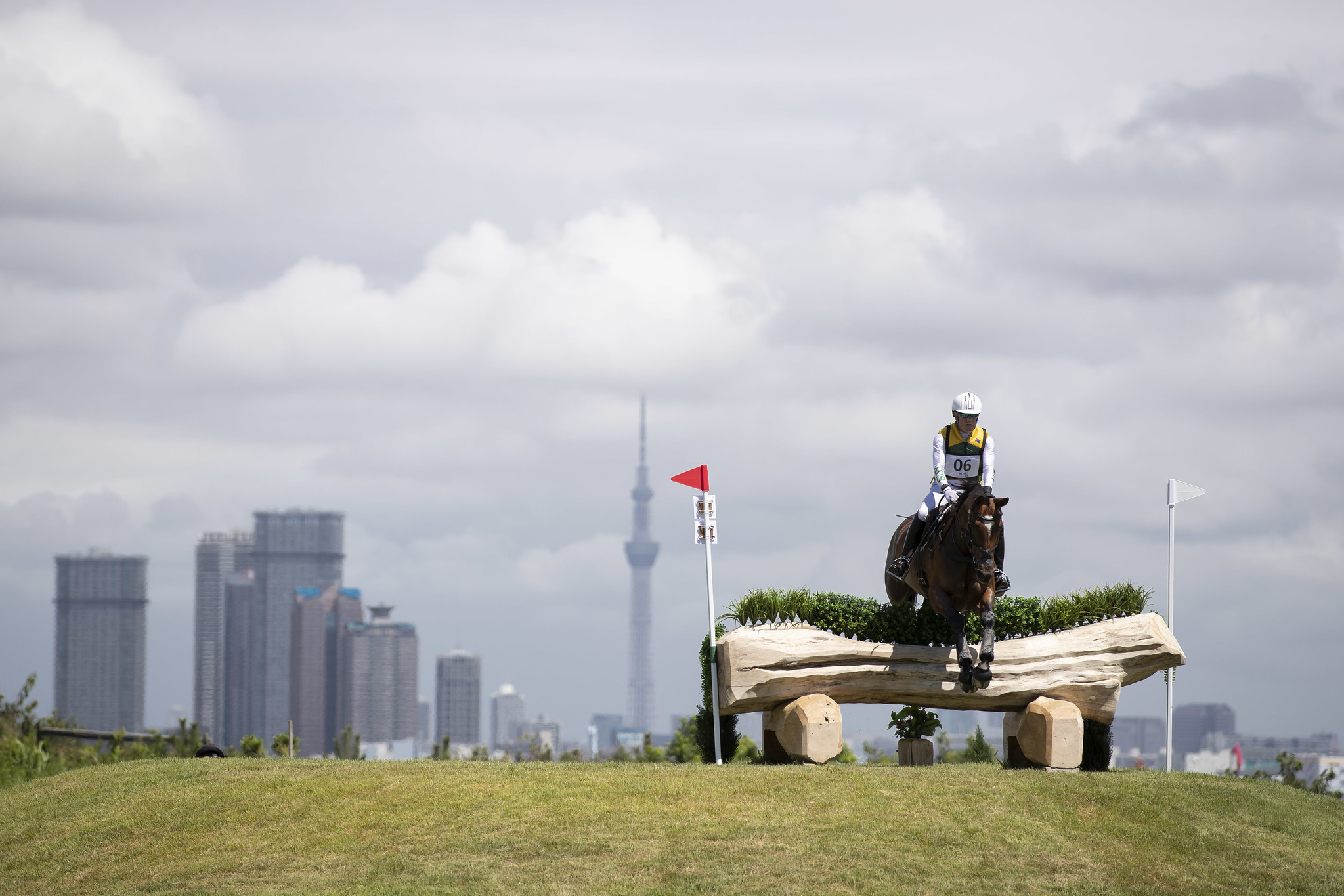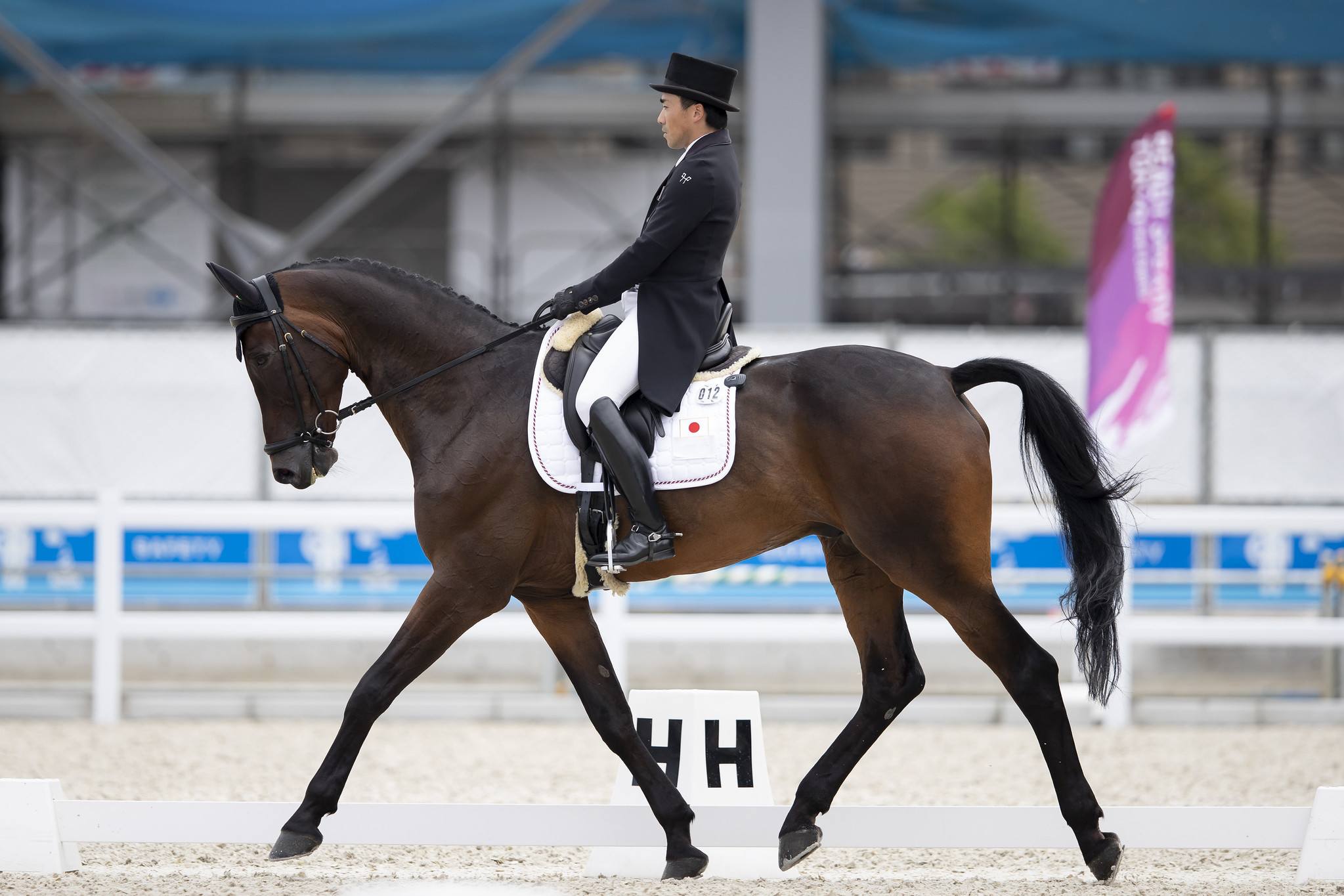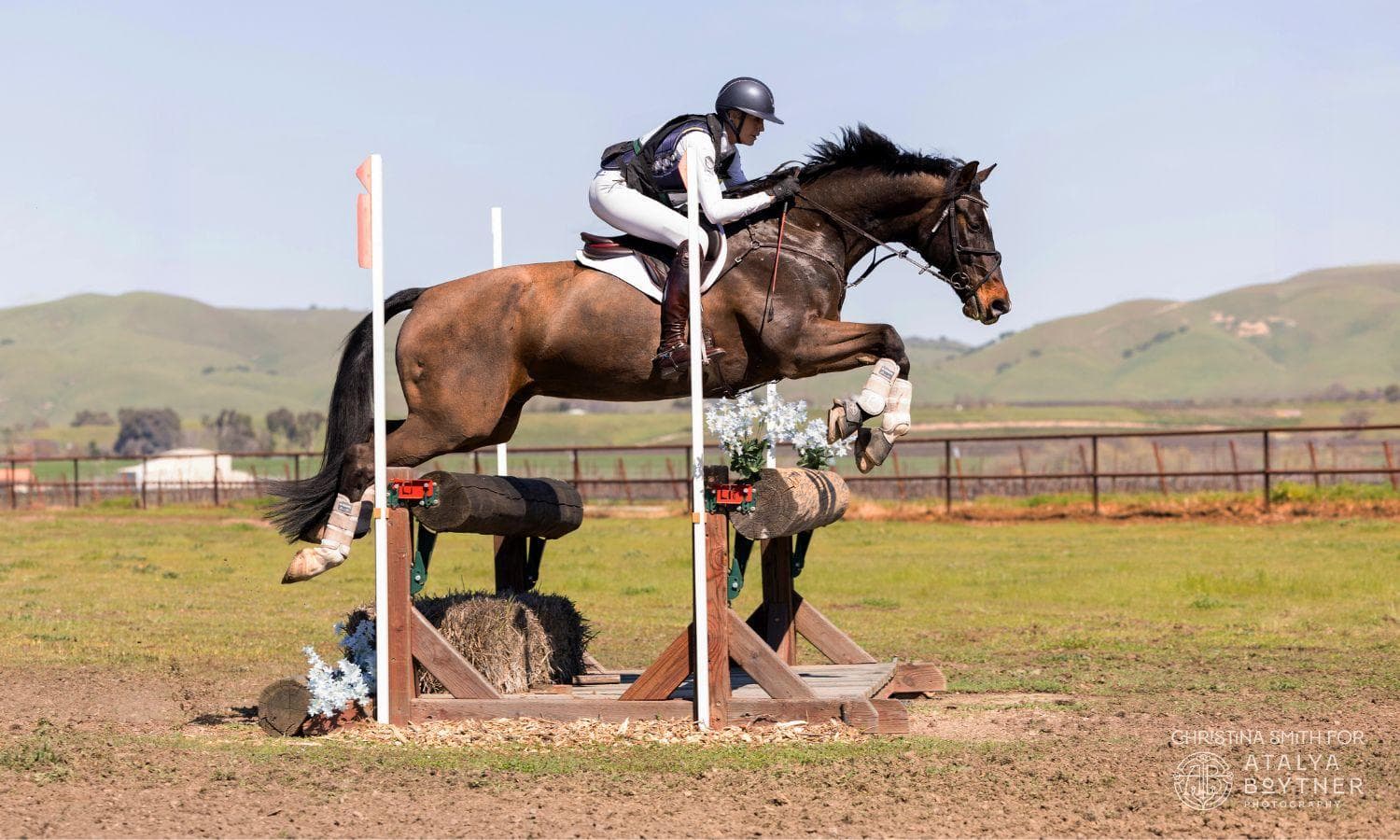Tokyo Talk: Five Months to Go

In five months the first horse will be cantering down centerline at the 2020 Olympic Games at the Equestrian Park in Tokyo, Japan. In recent weeks there have been several announcements regarding details for the Games to catch up on and there are several important dates to put in your calendar.
The full timetable for the Olympics was released in mid-February including the time for the horse inspections and the start time change for the cross-country. It was announced that the cross-country start time would move up 45 minutes to enable an 11:00 a.m. finish. This is due to the anticipation of high heat and humidity. This decision was made after the Tokyo test event last summer and the results of the FEI official climate impact study and horse monitoring project. Other sports have had changes as well due to the heat with the marathon and race-walking competitions moving to the Japanese island of Hokkaido, where it is cooler, and the times changing for the triathlon.
In addition to the new start time, the cross-country course was shortened to approximately 8 minutes and 4,500 meters. “The welfare of both human and equine athletes is at the heart of the FEI’s decision-making process and these decisions have been taken to allow competing nations to optimize their performances in the Tokyo summer climate,” said the FEI in a statement.
Eventing is the second of the three equestrian disciplines with pure dressage starting on July 25 and jumping on August 3. The 2020 Olympics get underway with the opening ceremony on Friday, July 24.

2020 Olympics Eventing Schedule
Thursday, July 30
9:30 – 11:30 a.m. – First Horse Inspection
Friday, July 31
8:00 – 10:30 a.m and 5:30 – 8:10 p.m. – Dressage (44 pairs)
Saturday, August 1
8:00 – 10:30 a.m. – Dressage (21 pairs)
Sunday, August 2
7:45 – 11:15 a.m. – Cross-Country
Monday, August 3
9:30 a.m. – 11:00 a.m. – Second Horse Inspection
5:00 – 7:30 p.m. – Team Show Jumping and Individual Qualifier
8:45 – 9:45 p.m. – Individual Show Jumping (top 25 pairs)
On February 17, the FEI also updated the qualification document with the quotas for the 20 individuals. The countries who will be represented as individuals are Netherlands (2), Belgium, Spain, Russia (2), Canada (2), Chile, Puerto Rico, South Africa, Pakistan, India, Hong Kong, Czech Republic (2), Belarus (2), Denmark, and Austria.
Pakistan qualified for an Olympic equestrian spot for the first time and the Czech Republic and Hong Kong, which have both qualified for an individual place in eventing, are planning to return to the Games for the first time since Beijing 2008. “The new formats have opened the door for more nations to compete at the Games, with show jumping going up from 27 in Rio to 35 in Tokyo, dressage increasing from 25 to 30 and eventing rising from 24 to 30. In total, the number of flags has risen from 43 in Rio to 48 in Tokyo,” the FEI reported.
The 15 countries participating as teams remain the same from the October 2019 Tokyo Talk.
All riders (whether on a team or individual) must achieve their MER between January 2019 and June 1, 2020. The MER for the Olympics requires that the horse and rider as a pair have a qualifying result at:
- 1 CCI5* OR 1 CCI4*-L AND 1 CCI4*-S
The qualifying result must have:
- Dressage score of 45.0 (55%) or less
- Cross-country clear or with 11 penalty points and not more than 75 seconds over the optimum time at four-star and not more than 100 seconds over the optimum time at five-star
- Show jumping with four rails or less
If countries with a team or individual spot are unable to qualify their riders by June 1 then the spots will be reallocated according to the Qualification System.

Important Dates To Remember
All U.S. riders who want to have a chance of being selected for the U.S. Eventing Team were required to complete the Olympic Games Application by February 14. U.S. Equestrian received 24 applications and only those who applied have a chance to be named to the team.
There are three selection trials left: Land Rover Kentucky Three-Day Event (April 24-29), Badminton Horse Trials (May 6-10), and Jersey Fresh International Three-Day Event (May 6-10).
The USEF will announce the preparation event (final outing) by no later than May 15.
By no later than June 1, three riders and horses will be named to the team along with a traveling reserve and up to the maximum number of reserves able to be nominated.
The closing date for entries due to the United States Olympic & Paralympic Committee is June 8.
The final athlete/horse combinations will be announced on July 6.
The declaration of starters will be announced on July 30.
“We have 13 athletes and 15 horses on our Elite and Pre-Elite training list, but I have also worked with a few athletes outside this list who are also Olympic possibilities. It is a very open book as to who will go to Tokyo, so it is up to the athletes to make sure they use every available day to make their improvements and put on the best performance at the selection trials,” said U.S. Eventing Performance Director Erik Duvander in his February 2020 update.
Stay tuned for more Tokyo Talk as we countdown the months to the Olympics!















